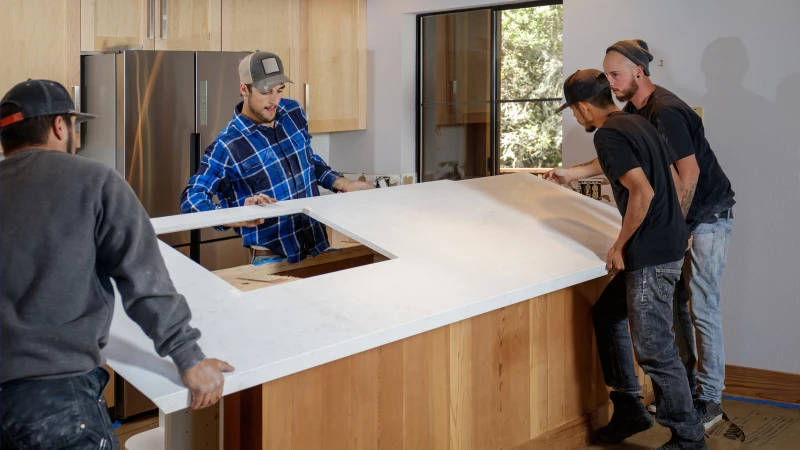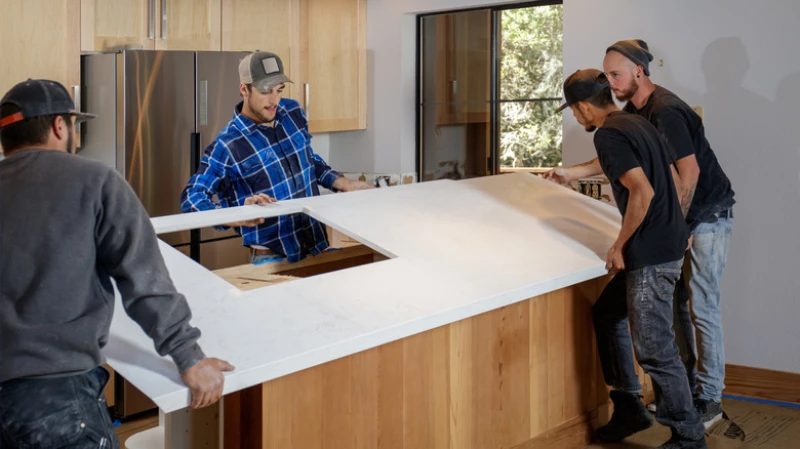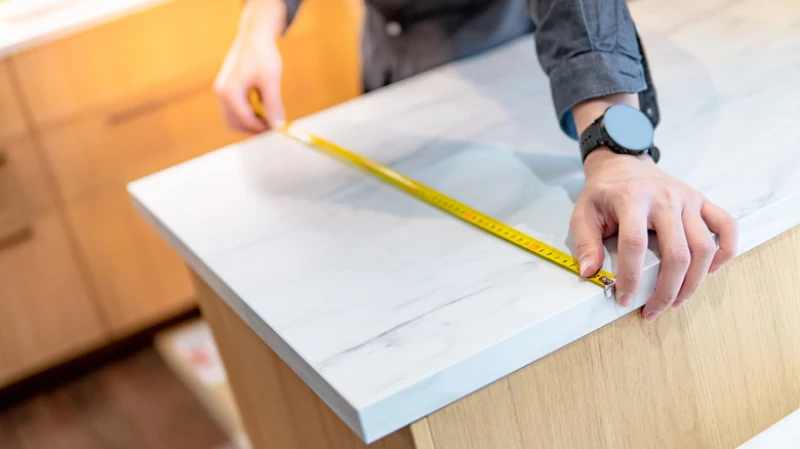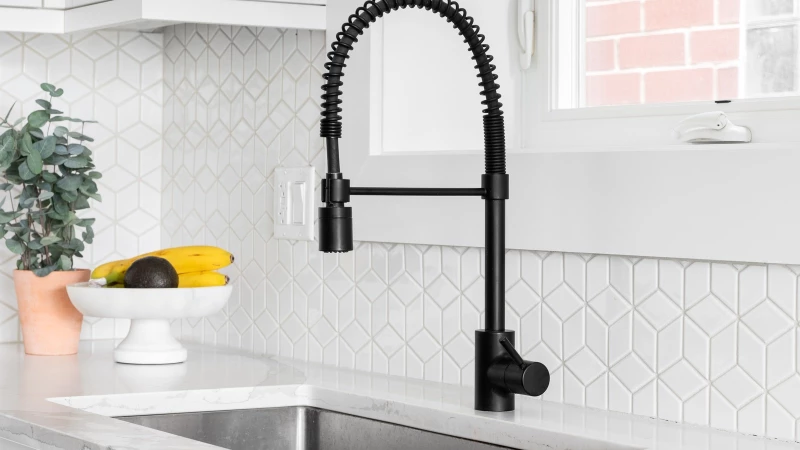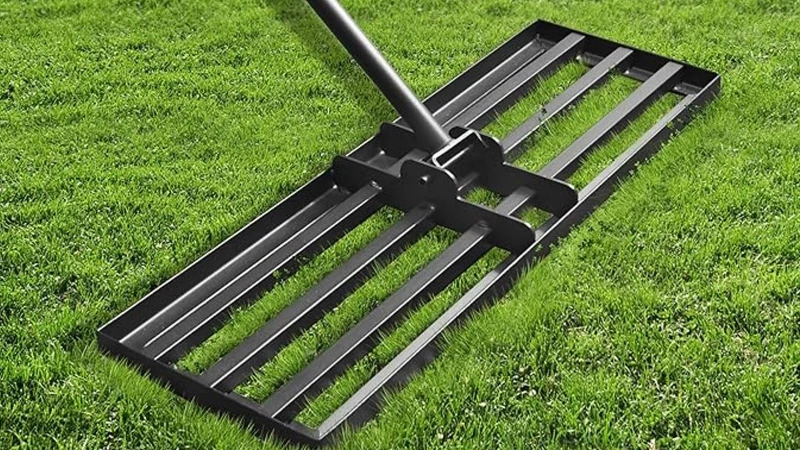Upgrading your kitchen countertops can be a significant investment for homeowners. It has the potential to consume 10 to 30% of your total kitchen renovation budget. To ensure you are prepared for this financial commitment, it is essential to plan carefully and calculate the construction costs in advance. If you are considering installing new countertops, start by determining the amount of countertop space in your kitchen and then multiply it by the cost of the materials needed for the project.
While projects involving high-end countertop materials are best left to professionals, tasks that involve more affordable materials like laminate can be turned into DIY projects, especially with a helping hand. Even if you plan to hire a countertop fabricator, measuring the length and depth of your counters in advance can be beneficial. While your measurements may not be as precise as those of a professional, having this information beforehand and understanding how contractors price their services can help you make a more informed decision when selecting a technician.
If you are considering getting new countertops for your kitchen, you can start by measuring the dimensions of your current countertops. This will help you estimate how much material you will need for the job. Here is a simple guide on how to do it:
Step 1: Measure the length and depth of your countertops
Start by measuring the length of your counters by measuring from wall to wall for accuracy. It's essential to measure in multiple spots to account for any variations in your kitchen layout. Next, calculate the depth by measuring from the wall to the edge of the counter, considering any space occupied by the backsplash. Neglecting the backsplash in your measurements can lead to purchasing countertops that are too short for your kitchen.
The average countertop depth measures 25.5 inches, so use this as a reference when measuring your own. After you've recorded all the dimensions and finished labeling your sketch, multiply the length and depth of each countertop slab separately before dividing each total by 144. This converts all of the measurements from inches to square feet.
Calculate the cost of materials and labor
Before tallying prices, you need to choose a countertop style. Once you've narrowed down the type of countertops you want to install, look up price estimates for your selected material online. These estimations will likely appear as ranges rather than specific amounts since countertop prices vary depending on various factors, including the thickness of the slabs and the overall quality of the product.
Next, find your recorded dimensions and multiply the area of each countertop slab, converted into square feet, by the price per square foot of your chosen material. If you haven't fully committed to a style yet, try drafting estimates for all possible contenders and weighing the pros and cons of each to help you decide.
Predicting Labor Costs for Countertop Installation
Estimating labor costs for countertop installation can be a challenging task, as factors such as location, industry reputation, and experience levels all come into play when contractors determine their pricing. On average, you can expect labor costs from professionals to fall within the range of $20 to $50 per square foot. However, these costs can vary based on the complexity of the project.
If you decide to take on the installation project yourself, you may be able to avoid these additional labor costs. However, it's important to note that any money saved initially by DIY-ing the installation might need to be spent on acquiring extra equipment that you may not already have. It is recommended that you only attempt to install countertops on your own if you have prior carpentry experience or experience in a similar trade.

